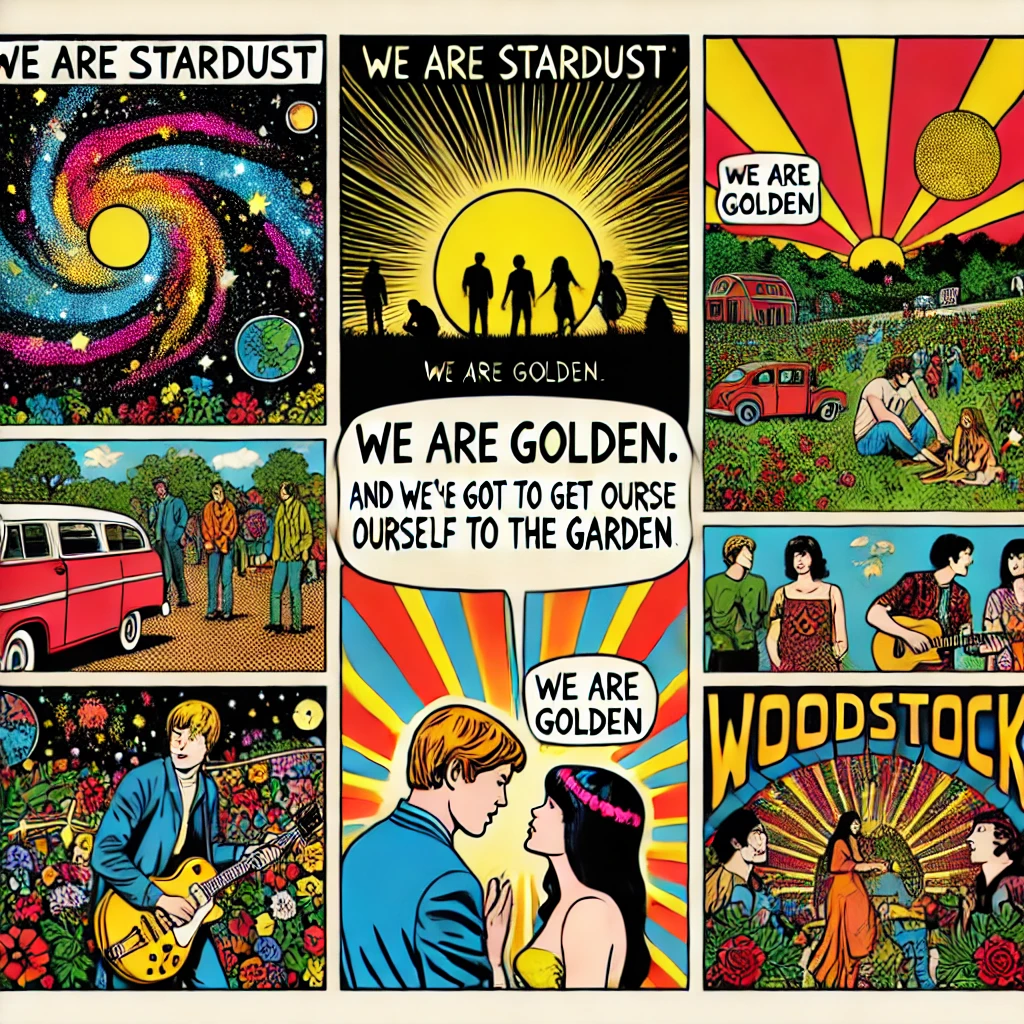We are stardust We are golden
Joni Mitchell’s song “Woodstock,” featuring the iconic line “We are stardust, we are golden,” encapsulates the spirit and aspirations of the 1960s counterculture movement. Written in 1969, the song reflects the collective yearning for peace, unity, and a return to a more harmonious existence, ideals epitomized by the Woodstock Festival.
Origins and Inspiration
Although Mitchell did not attend the Woodstock Festival due to scheduling conflicts, she was deeply moved by the accounts shared by her then-boyfriend, Graham Nash, and others who experienced it firsthand. This secondhand exposure, combined with media coverage, inspired her to compose “Woodstock” as a tribute to the event’s significance. The song was first performed live in 1969 and later appeared on her 1970 album “Ladies of the Canyon.” Notably, Crosby, Stills, Nash & Young’s rendition of “Woodstock” became a major hit, further cementing the song’s place in popular culture.
Lyrical Analysis
The phrase “We are stardust” poetically acknowledges the scientific fact that the elements constituting human bodies originated in stars, emphasizing humanity’s intrinsic connection to the cosmos. This idea resonates with the counterculture’s exploration of spirituality and the search for deeper meaning beyond material existence.
“We are golden” reflects a sense of purity, value, and potential inherent in humanity. It suggests that, despite societal flaws, there exists an innate goodness and capacity for positive change within each individual.
The line “And we’ve got to get ourselves back to the garden” serves as a metaphorical call to return to a state of innocence and harmony, reminiscent of the biblical Garden of Eden. It implies a desire to reconnect with nature, embrace simplicity, and foster a peaceful coexistence, countering the complexities and conflicts of modern society.
Cultural Impact
“Woodstock” became an anthem for the counterculture movement, encapsulating the zeitgeist of an era marked by a quest for peace, love, and communal living. The song’s imagery and themes resonated with a generation seeking to challenge the status quo and envision a more equitable and compassionate world.
The song’s enduring appeal lies in its ability to evoke a sense of nostalgia while continuing to inspire contemporary audiences. Its message of unity and the pursuit of a better world remains relevant, encouraging reflection on societal values and individual contributions to collective well-being.
Conclusion
Joni Mitchell’s “Woodstock” transcends its immediate context to offer a timeless reflection on human interconnectedness and the perennial desire for a harmonious existence. Through its evocative lyrics, the song invites listeners to contemplate their place in the universe and the shared responsibility to cultivate a more peaceful and just society.
